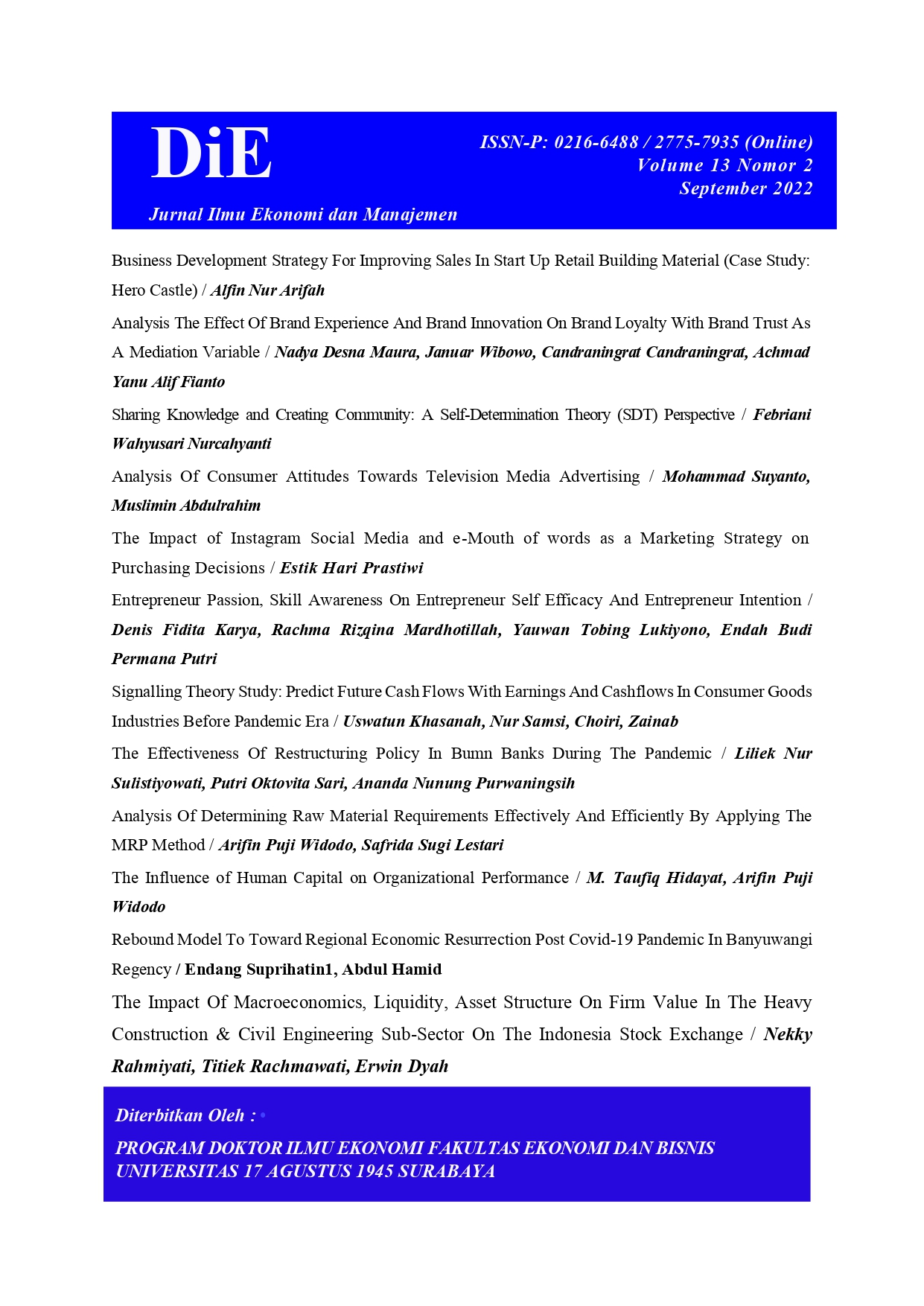ANALYSIS OF CONSUMER ATTITUDES TOWARDS TELEVISION MEDIA ADVERTISING
DOI:
https://doi.org/10.30996/die.v13i2.7295Keywords:
Consumer Attitudes, Advertising, Television MediaAbstract
As consumers, everyone becomes the target of advertising, even all parts of the human body are targeted by advertisements. Producer use various advertising media hoping to influence consumer behavior. One of the advertising media is television. This study focuses on the problem of consumer attitudes towards consumers towards television advertising. This research was conducted in the city of Surabaya. Sampling was done by simple random sampling method. Data were collected by distributing questionnaires with data analysis using Fishbein's attitude model.
The results of the study indicate that consumer attitudes towards television media advertising are based on advertising attributes: 1) Product information; 2) Social roles and image; 3) Entertainment; 4) Good for the economy; 5) Falsehood; 6) Corruption of values; 7) Materialism, is positive. Two things that need to be considered in advertising from the results of this study are: 1) Analysis of consumer attitudes towards advertising is important as a basis for preparing promotional strategies and programs, especially in the field of advertising; 2) Determination of advertising material needs to pay attention to the values that exist in the community.
Downloads
References
Eze,Uchenna Cyril & Chai Har Lee. 2017. Consumers’ Attitude towards Advertising. International Journal of Business and Management; Vol. 7, No. 13
Kasali, Rhenald, 2007, Manajemen periklanan, konsep dan aplikasinya di Indonesia. Jakarta. PT. Pustaka Utama Grafiti
Ling, Kwek Choon Ling; Tan Hoi Piew; Lau Teck Chai. 2010. The Determinants of Atttut Towards Advertising. Canadian Social Science Vol. 6. No. 4.
Loudon, D.L. dan Bitta, A.J. 2010. Consumer Behaviour Concept and Application (6th ed). Singapore : Mc Graw Hill
Mulyana, Ricad. 2022. Iklan Televisi. https://www.imaji.co/contoh-iklan-televisi/
Sutojo, Siswanto. 2009. Manajemen Pemasaran. Jakarta: PT.Damar Mulia Pustaka.
Weilbacher, W.M. 1984. Advertising. New York: Macmillan Publishing Company.
Downloads
Published
Issue
Section
License
The author who will publish the manuscript at DiE: Jurnal Ilmu Ekonomi dan Manajemen, agree to the following terms:
1. Authors retain copyright and grant the journal right of first publication with the work simultaneously licensed under a Creative Commons Attribution ShareAlike License that allows others to share the work with an acknowledgment of the work's authorship and initial publication in this journal.
2. Authors are able to enter into separate, additional contractual arrangements for the non-exclusive distribution of the journal's published version of the work (e.g., post it to an institutional repository or publish it in a book), with an acknowledgment of its initial publication in this journal.
3. Authors are permitted and encouraged to post their work online (e.g., in institutional repositories, pre-prints sites or on their website) prior to and during the submission process, as it can lead to productive exchanges, as well as earlier and greater dissemination of published work








